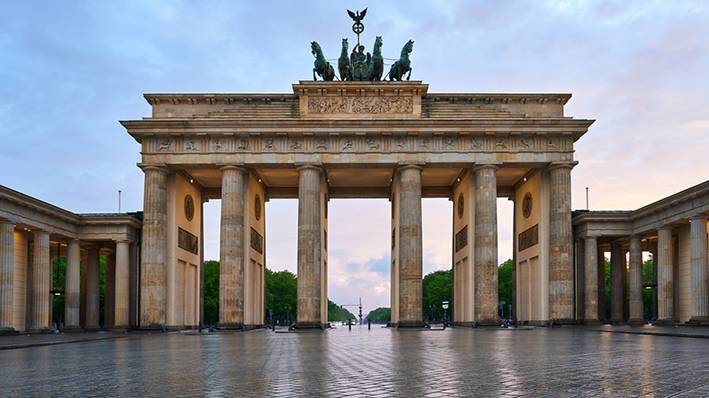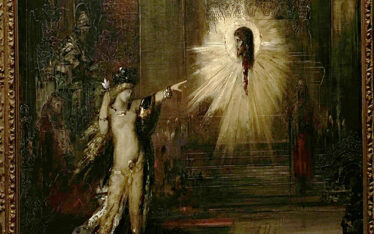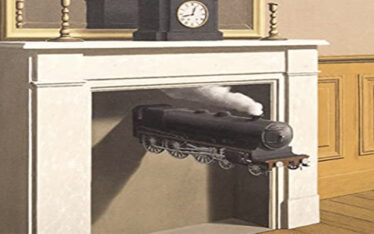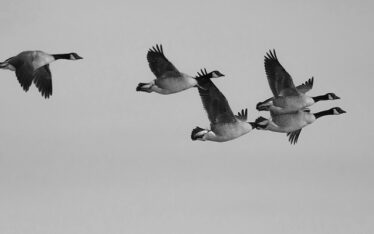
PeterJesche/Shutterstock.com
In 1984, Berlin was in fact two cities, two worlds, two lives. One with no limits. The other, the opposite and no freedom or choice.
It was a city divided, a city still rebuilding from the war. The democratic West, a landlocked island within communist East Germany, formally the GDR or German Democratic Republic.
1984
George Orwell’s dystopian novel titled “1984”, written in 1948, probed 36 years into the future. My excursion to West Berlin in ’84 was an anthropological journey of sorts. Although I viewed life then as very much in the present.
Wrapped in a cerebral haze, my mind struggles to fend off a virulent swarm of memories – even though such effort proves futile. Each plausible option inexplicably expired.
Up ahead, however, a dim light brightens slightly. Andrea’s image stands straight and tall, peering through the mist. Both hands akimbo. Her head tilts an imperceptible hair to her left. As our eyes meet, she beckons me to follow her through a gray translucent portal. Our gateway to the past.
EVER AWAKE
The city, a lively metropolis, had been encircled, since 1961, by a four-meter or thirteen-plus-foot-high, concrete wall – an intimidating structure that would remain standing and dividing the former and future German capital for another five years before West and East would once again be united.
Many restaurants, cafés, bars (kneipen), clubs, discos, in the West, almost never close – except for a couple of odd hours each day for the premises to be cleaned. On the other hand, markets, green grocers, bakeries and butchers closed at six each day between Monday and Friday, on Saturday at noon and remained shuttered all-day Sunday.
Owners of these small, mostly Ma and Pa businesses, by law, were granted a little family time for themselves. The mere thought of twenty-four/seven didn’t exist.
RIVERS FLOW
The Spree weaves its way along and often divides Berlin into East and West. Same as the Seine separates left bank from right in Paris. And as the Danube splits Buda from Pest.
Andrea and I were appropriately bundled up in multiple layers for a crisp wintry night. Boots, gloves, heavy sweaters and long coats. Only our faces remained visible.
We caught the S-bahn (straßenbahn, an above-ground subway line) at Bahnhof Zoo the last station before the train left the West and crossed the Spree. It headed for Friedrichstraße, the next stop in the heart of the old, deteriorated capitol of this Soviet satellite state.
seasons
Life in winter appeared frozen in time in staunch streaks of black and white. Come spring, a soft gentle green would be the first color to break through and warm the landscape. A faint blue soon slowly brightened the gray haze that blanketed the sky.
The time for the snow on the ground grew shorter. Soon, it would melt and the ice would crack.
But not the rigid Communist regulations. Exiting the station, we had to show our passports, each containing a proper transit-visa stamp enabling a one-day visit.
broken rules
I watch Nick, a stocky American in front of me who, when stopped by a border guard, foolishly clutches his language-school notebook in hand. He tells the guard he needs to review his homework. But the humorless man in uniform operates on reflex.
On spotting several long entries written in English, the guard wrinkles his brow and curtly confiscates the binder. Before Nick can protest, I catch his attention to subtly signal him. Best to just oblige and move on.
This excursion to East Berlin was to catch a performance of Berthold Brecht/Kurt Weill’s Die Dreigroschenoper (“The Three Penny Opera”) performed at the Berliner Ensemble. What a tremendous experience! Andrea and I left totally energized, humming the German original (Mackie Messer) for the catchy “Ballad of Mack the Knife”.
TRAFFIC REGS
Two days later, my friend Karl K. arrived in town. He was furious, repeatedly waving the traffic ticket he just received for speeding. “Damn Grenze Polizei!” muttered Karl, cursing the border police.
Seems they had examined his transit visa, checked the time Karl entered East Germany then the time he entered West Berlin, determining that, had Karl observed the posted limits, he should not have arrived for another twenty minutes.
“Scheíßer! Screw ‘em!” Not a chance!
tempers
The ticket already had been paid. Karl had to do it. He needed to get back his passport. Charming racket. But perfectly legal.
Everyone was a little riled.
My offer to buy brunch helped calm the tempers.
COZY
Andrea hopped onto my lap after I squeezed into the passenger seat of Karl’s old Porsche. We rode a few blocks, parked then met up with Daniël Meer from Amsterdam. Danny was waiting with Sabina, his German girlfriend, in front of her sister’s aesthetically cluttered antique and junk shop.
Merle, their Great Dane, bounded along and warmly stared us down.
Through the window, we spotted Sabina’s friend Ava, already seated in the café. She sipped on a weissgespritz (white wine spritzer).
greetings
A second later when Karl arrived, he strode directly over to Ava’s table. As their arms opened slightly, their fingers dug into the tablecloth for traction. Couldn’t wait to embrace and greet with kisses on both cheeks.
For them language was no barrier. Germans, who grew up in the Soviet sectors, learned Russian at school. Those, in the American and British sectors, learned English.
Young people, in the remaining western sector, learned French.
communicating
Andrea was one of those. She was a German psychologist, who didn’t speak a word of English. She had grown up in the Rhineland, which had been occupied by France after the war. So, French was her second language.
I regularly struggled to maintain our dialogue in German, a language I was just recently learning. After two glasses of wine, however, I relaxed. Conversation simultaneously grew easier.
Focus sharpened, and we were now able to laugh at ourselves.
STATESIDE
The ’84 Olympics, held in Los Angeles, turned out to be a super patriotic affair.
“Never seen so many American flags flying together,” notes Sabina, sipping her spritzer as we watched the TV coverage. “From what I see, they’re flying almost as many Stars and Stripes as Berlin had Swastikas in ’36.”
“Hope you’re not making comparisons,” I interjected, catching a replay of the opening parade ceremonies.
STARS & STRIPES
“Just observing,” she said before the crowd let out a roar when the U.S. team marched past on the screen. Conversations continued uninterrupted in the café.
“Street traffic must be impossible. Can’t even guess what the airport must be like.”
“I hear they just barely finished construction. Built a whole new second story of roadway.”
presidential visit
“Glad I don’t have to contend with it.”
“Reminds what it was like here in ’63 when Kennedy visited and spoke at the Steglitz city hall,” muses Karl, contemplating whether or not he wants to eat. “I’ll never forget that day. Berliners loved Kennedy.”
“He told the world we are all Berliners.”
j.f.k.
“All free men, wherever they may live, are citizens of Berlin, and, therefore, as a free man, I take pride in the words: Ich bin ein Berliner.”
A few months later, tragedy struck. President Kennedy was dead. Killed by an assassin’s bullet in Dallas.
When Ronald Reagan, a Republican, was president and visited Berlin in ‘87, he honored the memory of Kennedy, a Democrat. Being from opposite parties didn’t matter. In those days, American politicians still mutually respected one another.
CATCHING UP
Reagan spoke in front of the Brandenburg Gate at the entrance to the west. There, he firmly declared: “Mr. Gorbachev tear down this wall.” Statesmen, who read this speech in advance, feared the wording would be too strong.
It wasn’t. His words reverberated. Red states, blue states. Republicans, Democrats. Germans on the other side of the wall all listened and applauded but feared nothing would happen. Yet, in another two years, Europe experienced, as social historian Francis Fukuyama had optimistically referred to it as “The End of History”.
In retrospect, Fukuyama later recognized his short-sightedness at the time. The grass was not all green. Neither liberal democracy nor economic growth have experienced an unobstructed path forward. Today, however, Germany remains united in the center of Europe. Solidly anchored in the west, an exemplar of contemporary western values.
LOOKING FORWARD
I long to revisit Berlin. The city calls out. I need to look up my old friends, see where they are living, where they have been and where they still are going.
It’s time to hang out again in Charlottenburg on Kantstrasse and eat at Paris Bar. Escargot and frites (genuine fries). It has been way too long. Even the all-night Schwarzes Café still holds an appeal. Both places been there forever.
Recently I heard from Danny, who invited me to visit. Wants me to hang with him on his boat on the Havel. Sure. No second thoughts. I would give anything to see Andrea. Danny said she likewise would love to see me. Probably would join us as well. I’ll never forget how we met, seated at adjacent tables. Writing in the gardens at Café Einstein. Both of us preoccupied. Unaware of the time. Until the waiter gave me her plate of apfelstrudel by mistake, which broke the ice.
About the Article
A glance back to 1984 when Berlin was still a divided city in a divided country.



